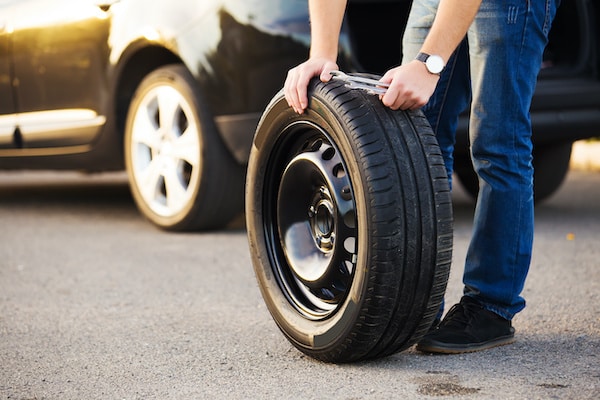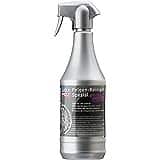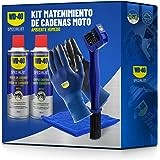In Spain, it is mandatory for vehicles to carry a spare wheel (and the tools to change it), along with other items which must be carried in the vehicle. Some modern cars however do not have spare wheels, but rather have an emergency “get home” kit, which is designed to get you to a place of safety in order to have the tyre repaired. These too, if they are standard or certified, are allowed.
However, despite the ruling, there are certain vehicles which are exempt from the mandatory requirement to carry a spare wheel.
Before we explain the exception, it is important to note that the tyres are amongst the most important and safety critical elements of a vehicle and must be cared for and checked on a regular basis. In the event of you suffering a puncture, you must not drive with a tyre in this state, and should replace the wheel if it’s safe to do so, or summon help by the roadside, or use your emergency kit to get you to the nearest place where you can have the problem rectified by a professional, which most likely will result in having to replace both tyres on the same axle, but this, although perhaps more expensive than we might like, is the safest option.
If you have a full-sized spare wheel, you can continue as normal once you have changed it, but bear in mind that you will possibly now have an imbalance on the tread between wheels, so it is worth getting it checked. Emergency wheels, and emergency kits are designed only to get you to a place where you can take appropriate remedial action, but you should check any restrictions on distance, weight and speed.
Driving with worn or damaged tyres is an offence, but stopping to repair the situation in the wrong place on the road can also result in a fine, as it is potentially dangerous. If there is any doubt, get to a place of safety and summon help. Remember to use your high visibility vest, hazard lights, and warning triangles or emergency beacon, if appropriate.
Having said all of the above, the regulations require most vehicles to carry one of the systems mentioned, but there are the exceptions we are talking about. Specifically, the DGT refers to commercial vehicles, although not all.
Along with cars, vans and light trucks, whose weight is less than 3,500 kg, are required to always carry a spare wheel or an anti-puncture kit. This is established by the regulations: “Vehicles transporting people or goods weighing up to 3,500 kg must have a spare wheel, which can be for temporary use or a complete wheel, or an alternative system”.
On the other hand, vehicles that exceed that weight are not required to carry a spare wheel. The reason is obvious, as these tyres and wheels are so heavy, no single driver could change a wheel. In addition, heavy vehicles are often equipped with different types of tyres, depending on their use and location.
Liqui Moly 1597 Limpiador de Llantas Especial, 1 L
13,24 € (13,24 € / l) (as of 22/08/2023 10:39 GMT +02:00 – More infoProduct prices and availability are accurate as of the date/time indicated and are subject to change. Any price and availability information displayed on [relevant Amazon Site(s), as applicable] at the time of purchase will apply to the purchase of this product.)
WD-40 Specialist Motorbike Kit Mantenimiento Cadena Moto Ambiente Humedo (Limpia Cadenas + Grasa Cadenas + Cepillo + Guantes + Paño), Blue
27,40 € (as of 22/08/2023 11:06 GMT +02:00 – More infoProduct prices and availability are accurate as of the date/time indicated and are subject to change. Any price and availability information displayed on [relevant Amazon Site(s), as applicable] at the time of purchase will apply to the purchase of this product.)







